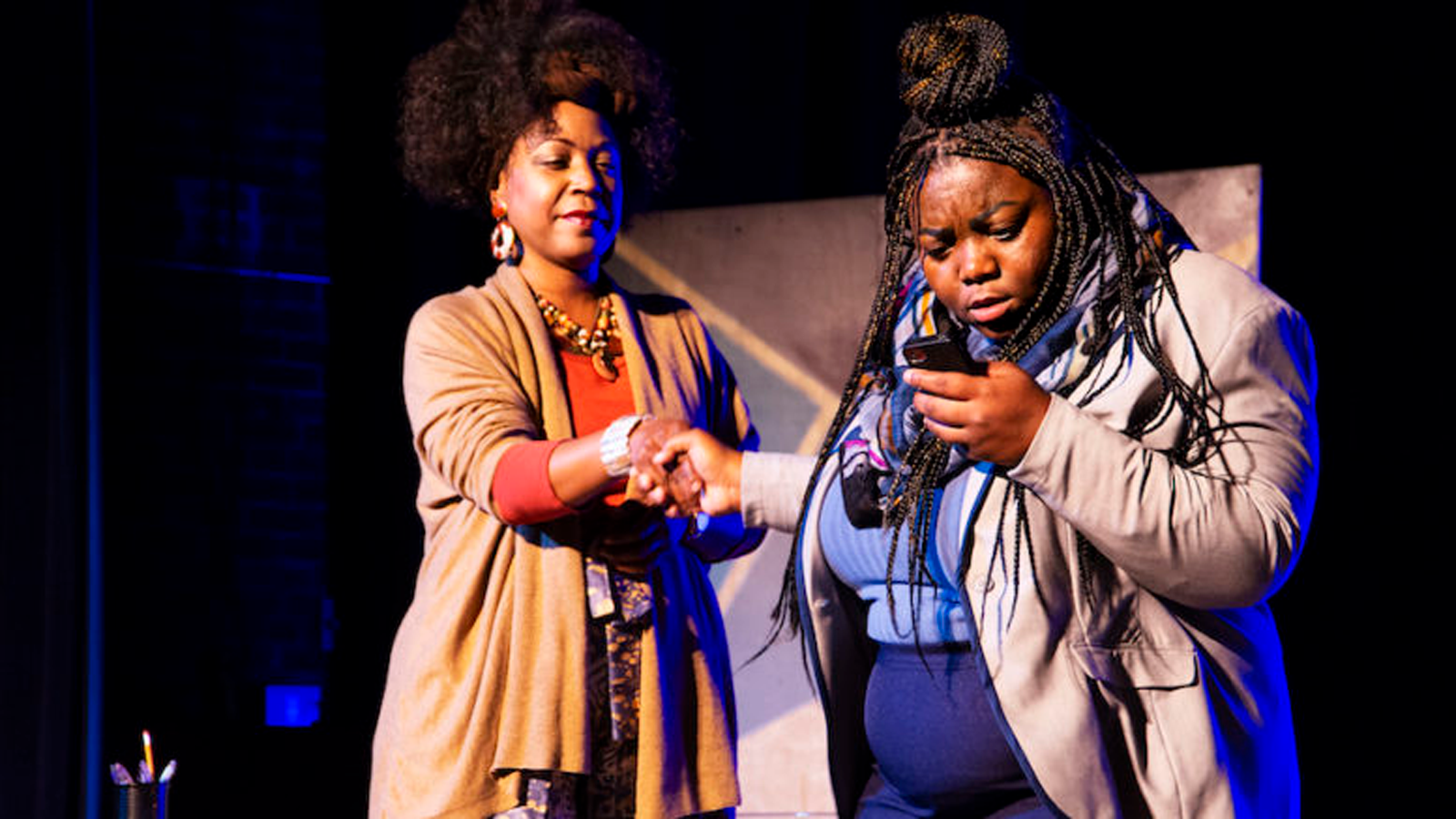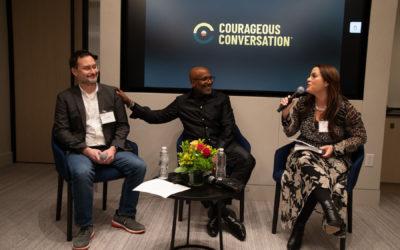By Claire White—June 12, 2018
Does calling offensive behavior “a joke” detract from degradation inflicted at someone’s expense? Is humor usually a deflection from assessing our insecurities? Can people thrive without fully embracing parts of themselves and their histories?
Leave it to a handful of freshmen eager to establish themselves at a small liberal arts college to consider these questions when brought together by a classmate’s racist portrayal of a Black freshman circulating on social media.
Dealing with many of the themes depicted in the film-turned-TV-series “Dear White People, “Baltimore” handles the issues through protagonist Shelby Wilson (Zemmoia Bryant), a 20 year-old Black woman who initially shields herself from her leadership role as a resident assistant in response to one freshman’s lack of remorse in perpetuating racism on campus. Wilson, a sports medicine major who lost her job in the athletics department, puts on blinders with the excuse of improving her resume throughout the play.
White freshman Fiona, played by Maggie Hodson, is the perpetrator of the racist post. Dating a Black guy and using Ebonics once in a while, Fiona unconvincingly claims to understand Black experiences. Nicknamed “Snowball” as a child for her white hair, she equates childhood teasing with racism over her attempt to “have a joke” at peer Alyssa’s (Breanna Thornton) expense.
Intrepid Theatre Lab co-founder and “Baltimore” director Greg Foro made space for diverse perspectives to guide this production by initiating a cast conversation exploring writer Kirsten Greenidge’s intentions for production before rehearsals began. Inspired by the Black Lives Matter movement–with references to the Tamir Rice, Sandra Bland and Ferguson protests–”Baltimore” calls for deep critical analysis in character studies.
Greenidge’s production, commissioned by the Big Ten Theatre Consortium in an effort to create more female leads, peels back tiers of stereotypes and personal experiences to reveal individual students of color who want to be seen completely. Not seen for their aspirations or accomplishments. Not seen for race or family ties. But seen completely.
Driven by dialogue, there is nothing flashy about “Baltimore.” It may even be irksome for folks who want to escape from reality and be entertained. The production requires emotional investment.
As a white man directing a play written by an African American woman, Foro does well to cast Black actress Donna Marie–founder of TOASTCO (Telling Our Authentic Stories Theatre Company)–as Dean Hernandez, a part originally written for a man. Donna Marie’s perspective was an invaluable resource for the cast during the early stages of the production, Foro says.
For a production aiming to provoke conversations on perspective-taking, the intersections of identity and refusal to address racial biases masquerading as insolence, just one subpar actor could have prevented the audience from accessing these nuanced concepts.
A standout performance from Marie endears Dean Hernandez to the viewer as both convincingly equanimous and critically responsive in encouraging Shelby to examine her responsibility to her community in the midst of racial tension. Marie’s performance is also significant as live theatre in Sacramento often lacks representation of Black, Latina women.
Read more at Voices: River City.




